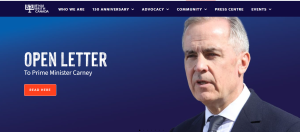 TORONTO — Lori Starr, executive director of Toronto’s Koffler Centre of the Arts, wants to make one thing clear.
TORONTO — Lori Starr, executive director of Toronto’s Koffler Centre of the Arts, wants to make one thing clear.
Lori Starr
The centre’s decision in May to disassociate from Reena Katz’ exhibit about the history of Kensington Market was not about the 33-year-old artist’s personal convictions or beliefs, Starr told The CJN.
Rather, she said, it had to do with her “public statements that undermine Israel as a Jewish state.”
According to Katz’ Facebook page – which Starr saw only after the centre had made plans to co-sponsor her exhibit with the Toronto art festival Luminato – she is a member of the social networking website’s groups Queers Against Israeli Apartheid, Oppose the Motion to Condemn Israeli Apartheid Week, and “No Place for Israeli Products Here” Campaign.
The centre, which had provided $20,000 to the exhibit, did not pull its funding. Baycrest, whose seniors were integral to the exhibit’s interactive component, withdrew its support just before the scheduled opening date of May 20. It was to have run in Kensington Market until July 26.
Fallout from the Koffler’s decision included the resignation of one of its 21 board members.
As well, four of 26 artists who were scheduled to be part of the Wrecking Ball – a fundraiser and celebration of the centre held June 18 – withdrew from the event.
However, Starr noted, “a number of” other artists contacted the Koffler Centre after the Katz incident and donated works to the silent auction held as part of the event.
On Katz’ website, eachhand.org, the artist, along with independent curator Kim Simon, wrote in a May 15 letter that their request to meet with the Koffler board of directors had been rejected.
Communication between the Koffler Centre and Katz is now being done through lawyers, Starr confirmed.
She declined to elaborate, other than to say they are discussing the fulfilment of contractual obligations, and there is no current lawsuit.
The Koffler receives public funding from Canada Council, the Toronto Arts Council and the Ontario Arts Council.
Claire Hopkinson, executive director of the city-funded Toronto Arts Council (TAC), told The CJN that the Koffler Centre has been “a valued client since 1999.” The centre receives $50,000 annually from the TAC – representing just under half of Koffler’s government funding – for operating costs, but not for projects, through the council’s visual media arts program. (Koffler’s total annual operating budget is $1.5 million, which mostly comes from donors, patrons and UJA Federation of Greater Toronto.)
Among the criteria for receiving the TAC funding are responsible budgeting, quality of the curatorial work, accessibility issues, value to the community, how well the organization is run, and conformity to policies of the City of Toronto, including human rights and non-discrimination, Hopkinson said.
“Currently we are in discussion with the Koffler as a partner, with regard to… issues that have arisen,” she said. “I can’t say more than that… Our first communication has to be with a client. We’ll be meeting with them in the very near future.”
“We’re in dialogue with the [arts] councils,” said Starr.
In a public letter to the community (posted online at www.kofflerarts.org), Starr said that Israel’s “well-being and existence as a Jewish state is a core value” of the centre. “No organization could be expected to partner with an individual who actively works against one of its core values.”
Starr, who is on the steering committee of the Council of American Jewish Museums, told The CJN that the centre “has no intention of preventing anyone from being critical of Israel’s policies… However, our centre, like our community, is committed to Israel’s existence as a Jewish state.”
She said the centre, which is an agency of UJA Federation, has a history of “developing and presenting artistic works that reflect a diversity of ideas and expressions and debate about Israel’s policies.”
The Koffler’s mission, according to its website, is “to create a more civil and global society by fostering mutual understanding through the exploration of arts and culture.”
The centre has learned “a valuable lesson about due diligence,” Starr said. “I think that what we’ve learned is that while we’ll still continue to make our decisions first and foremost based on the quality of work as we move forward, we need to perhaps take into account, redefine what it would mean for us as a Jewish cultural institution doing more due diligence.”
“You have to engage in a more thorough research process that brings you beyond artistic matters.”
The centre’s disassociation from Katz’s exhibit sparked “an enormous number of e-mails and phone calls,” said Starr. “We’ve had hundreds supporting our actions… and we’ve also had – I wouldn’t say hundreds – but we have had a smaller proportion of letters, e-mails and voice-mails from those who are rather confused about the actions we took” or are out-and-out negative.
“Some people have been confused that they thought we cancelled the exhibition or censored the artist… and there have been a number of voices who have expressed concern to us” over a cultural institution taking such a step.
Starr said she is “actively engaging” in discussion with people in the arts community who are “committed to civil dialogue. I’m reaching out to those who have expressed their concern.
In an e-mail to The CJN, Katz said that she’s “deeply saddened and frustrated by the polarized situation Koffler has created in their unprofessional choices. These include: immediately going public with a press release slandering me; refusing my request to meet with their board of directors to clarify my political position; and violating the Toronto Arts Council’s anti-discrimination policy, which they signed in receipt of programming funding.”
She added that “Koffler’s claim that my public position regarding anti-Zionism supports the extinction of the State of Israel is ridiculous and defamatory. I support democratic reform, not abolitionism. Our community desperately needs to end the silencing of dissent around Israel/Palestine, and open itself to respectful internal debate.”






